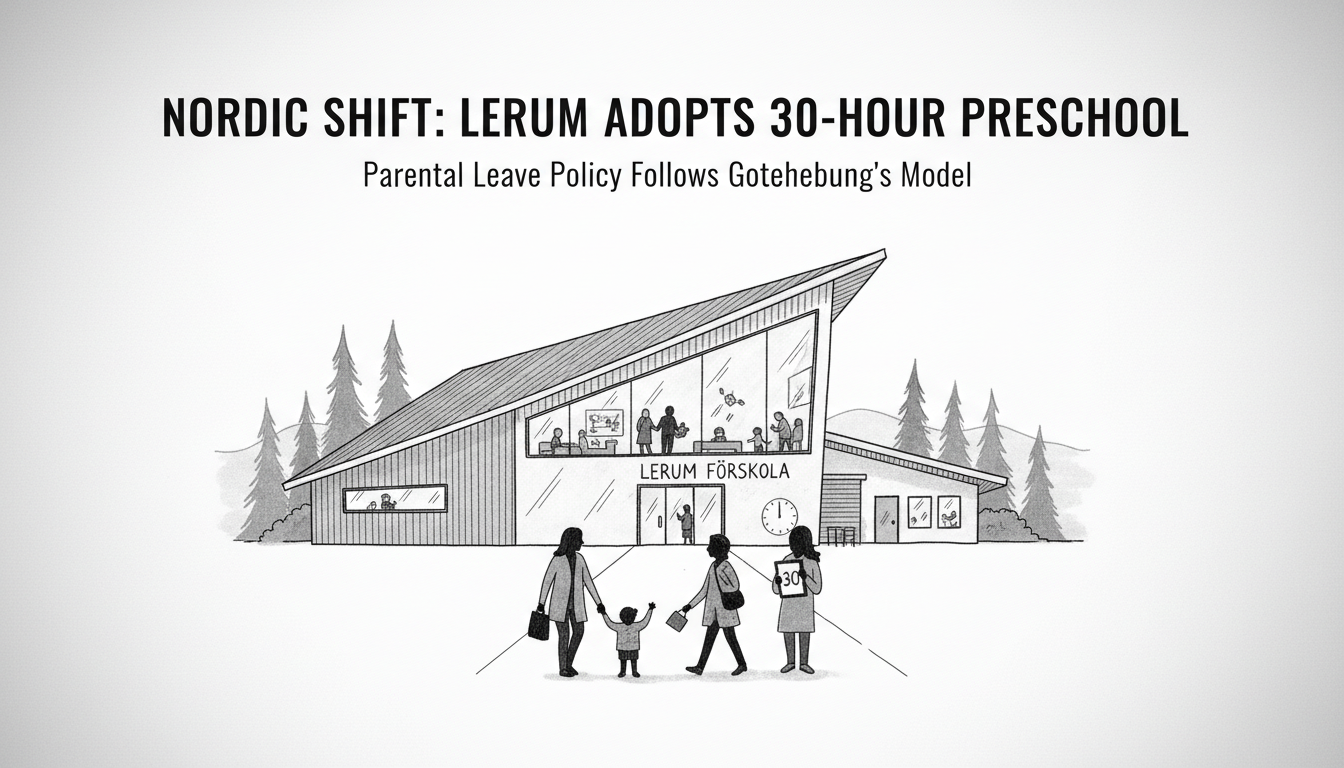The Swedish municipality of Lerum is adopting Gothenburg's policy of 30-hour preschool weeks for children of parents on parental leave. This decision comes after significant pressure from local families seeking more flexible childcare options.
Viktor Lundblad, chairman of the municipal executive committee, confirmed the policy change. He stated that parental demand drove the decision. Many families had requested expanded preschool access during parental leave periods.
The 30-hour model allows parents to maintain partial preschool enrollment while on leave. This approach helps children maintain social connections and educational continuity. Parents gain flexibility to handle appointments or part-time work transitions.
Sweden's parental leave system already ranks among the world's most generous. Parents receive 480 days of paid leave per child. This new preschool policy complements that existing framework.
Gothenburg pioneered the 30-hour model earlier this year. Lerum becomes the first neighboring municipality to adopt similar measures. The move signals a potential regional trend in childcare policy innovation.
Municipalities in Sweden control most preschool and education services. This decentralized system allows local adaptation to community needs. Lerum's decision demonstrates how policies can spread between municipalities.
The policy addresses a common challenge for Swedish parents. Many struggle with maintaining preschool spots during extended leave periods. This solution prevents children from losing their established educational placements.
Sweden consistently ranks high in global work-life balance comparisons. Policies like this reinforce the country's commitment to supporting families. The approach balances parental needs with child development considerations.
Local officials expect other municipalities to monitor Lerum's implementation. Successful outcomes could inspire broader adoption across western Sweden. The region may see increased competition among municipalities to offer family-friendly services.
This development reflects Sweden's pragmatic approach to social policy. Solutions often emerge locally before spreading nationally. The Gothenburg-Lerum connection shows how urban centers can influence suburban policies.
International observers frequently study Swedish family policies. This latest innovation offers another case study in balancing work and family life. The approach may interest other countries facing similar childcare challenges.

